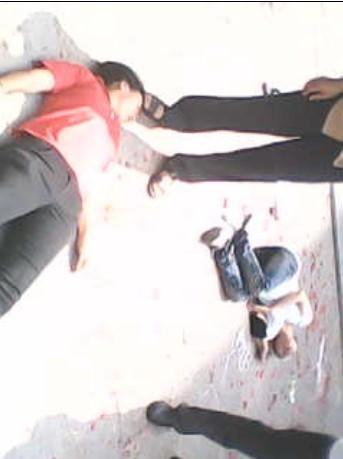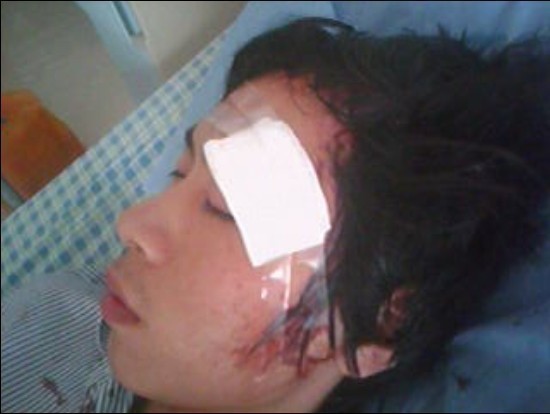To: Ms. Edena Low,
Vice President of EHS, CSR & Government Affairs, Mattel
December 2, 2015
Dear Ms. Low:
Beginning in 2001, Mattel has repeatedly criticized reports written by China Labor Watch (CLW) for being “inaccurate”, “misleading”, or containing “factual errors”. We saw this same sort of biased language in your recent letter. The problem remains, however, that working conditions in Mattel’s Chinese factories have not fundamentally improved. This is an undeniable fact. Mattel’s toys continue to be produced in sweatshops.
Every year from April to November is the busy season at Mattel’s factories, during which time workers work 10 or more hours per day, six days a week. In Mattel’s supplier plants, workers are demanded to work six days a week for only six or seven normal hours per day in order to avoid China’s double pay rule on Saturdays. Using this method, a factory can reduce its pay to each worker by US$200-300 per year, nearly 10 percent of their base wage.
For more than a decade, workers making Mattel products have only been paid the local minimum wage—currently less than $1.50 per hour. Only with considerable overtime can workers make ends meet. During the low season, some workers cannot get by and have no choice but to quit, which allows the factory to get out of severance pay commitments.
Labor rights violations are pervasive throughout Mattel’s supply chain in China. CLW’s investigative findings are similar to those of a number of other labor organizations, including SACOM and The Institute for Global Labour and Human Rights. On August 8, 2015, the Wall Street Journal reported on a Mattel supplier in China that owed $725,000 in wages to 700 workers.
CLW and Mattel have been in dialogue since 2001, during which time we have constantly emphasized the need to limit workers’ overtime and pay insurance according to law. In your letter, you once again said that Mattel limits the workweek to 66 hours and provides legally mandated insurance. But after more than a decade of repeating the importance of controlling working hours, overtime at your factories still violates Chinese law. Chinese law demands a 40-hour workweek with no more than 36 hours of overtime per month. But in Mattel’s factories, workers’ overtime is more than 80 hours per month for eight months of the year. Because your factories in China do not have unions that can represent workers’ interests, Mattel can ride roughshod over workers.
Your letter also surreptitiously switched a couple of concepts. While Mattel and its suppliers have provided insurance for workers, the insurance level does not meet legal minimums. I understand that the problems of minimum wages, excessive overtime, and insurance are widespread in the toy industry, but Mattel’s conduct violates Chinese law and is unfair to Chinese workers.
As for the ICTI standard mentioned in your letter, this standard itself was formulated by toy companies like Mattel in the first place. The 66-hour workweek violates Chinese labor law. You mention professional auditors, but Mattel has never published the detailed regular audit reports produced by professional auditors. Please list the specific working hours, overtime hours, wages, housing conditions, benefits, and insurance of workers in your factories. Please also detail how your workers elect their union representatives, a full list of the chemicals they use in production processes, and the specifics of pre-job safety training provided to your workers.
We have repeatedly requested that Mattel publish detailed audit results to no avail. Yet you accuse our reports of lacking accuracy and professionalism or being misleading. Mattel continues not to respond to our request for transparency in working conditions.
CLW is willing to continue a dialogue with Mattel. We have previously held a number of phone calls with Mattel, but most have not resulted in fundamental changes. In our most recent report, CLW has acknowledged some changes observed in Mattel’s own factories, such as paying double time wages for all Saturday overtime, or controlling working hours to 10 hours per day, six days per week during the busy season. On these two points, Mattel’s own factory was found to be doing relatively better than other toy plants. But it is not enough.
We are willing to collaborate with Mattel on the foundation that both our organizations seek to improve working conditions in factories linked to Mattel. A few years ago, we raised with Mattel the case of Hu Nianzhen, a worker at Winson who jumped to her death during work (see attached statement from her family members). Four years later, her family has still not received the full compensation they originally demanded. If Mattel and CLW are unable to resolve the demands of a deceased worker’s family, then there is no sustainable foundation for cooperation.
Sincerely,
Li Qiang
Executive Director, China Labor Watch
ATTACHMENT: The Case of Hu Nianzhen
In 2011, a 45-year old woman worker named Hu Nianzhen jumped to her death while working at the Winson factory, a supplier to Mattel. Ms. Hu worked under a high-intensity environment where workers were berated and fined for failure to meet quotas. On May 16, she committed suicide during a work shift. Through interviews with Hu’s family members and co-workers, CLW learned at the time that Hu was yelled at by factory management for producing too slowly, and they even threatened to fire her. Management demanded that she resign on that day, making Hu severely distressed. Shortly afterward she climbed up to the fourth floor of the factory and jumped to her death. Despite the labor intensity and managerial abuse directly contributing to her death, the factory refused to pay full compensation to the family of Hu Nianzhen, giving them 90,000 RMB ($14,000) of the demanded 250,000 RMB ($39,000). Instead, when the family showed up at the factory to protest, the factory retaliated by calling a group of people who assaulted them (see the photos below). To this day, Mattel and Winson continue to refuse to pay the full compensation demanded by Hu Nianzhen’s family. Below the photos is a statement from Hu Nianzhen’s family.



Statement
Hu Nianzhen is a deceased woman worker who was employed in the painting department of Shenzhen Winson Precision Manufacturing. This is a high-pressure factory where production quotas are constantly being raised. If [a worker] does not meet the quotas, [she] will be yelled at by management. If [a worker] accidentally makes a defective product, not only does [she] need to reproduce it, but [she] will also be fined. Hu Nianzhen was relatively old and had bad vision, leading to her frequently being scolded by supervisors. High-intensity labor and scolding by factory management led her to experience tremendous physical and mental stress.
On May 13, 2011 [Hu Nianzhen] was yelled at by management. She called her husband in far-away Foshan to complain, expressing that she didn’t want to go to work the next day and was concerned she’d be fired by the factory. On May 16, [she] got into an argument with a supervisor when she asked for leave. The supervisor did not permit it and didn’t let her work. After receiving this sort of insult, Hu Nianzhen cried by herself in the material room. She could no longer bear the factory’s labor intensity and management’s unjust treatment, and at about 12:40 p.m. that day, [she] was forced to end her life, forever leaving her husband and three children.
Up to today, we, the deceased’s family members, remain in tremendous grief. We are dissatisfied with the attitude and compensation amount of the factory during compensation negotiation. But as migrant workers, in order to arrange Hu Nianzhen’s funeral, we have no choice but to abandon our low-wage work, risk our ability to maintain basic living costs, and return home to bury our deceased family member. After negotiating with the factory six times without any result, we were unable to continue negotiating with the company about compensation. We were forced to accept the unfair compensation offer decided by the factory. Signing the compensation agreement was an act of helplessness. As Hu Nianzhen’s direct relatives, we declare that we maintain the right to pursue more compensation from Shenzhen Winson Precision Manufacturing.
June 4, 2011